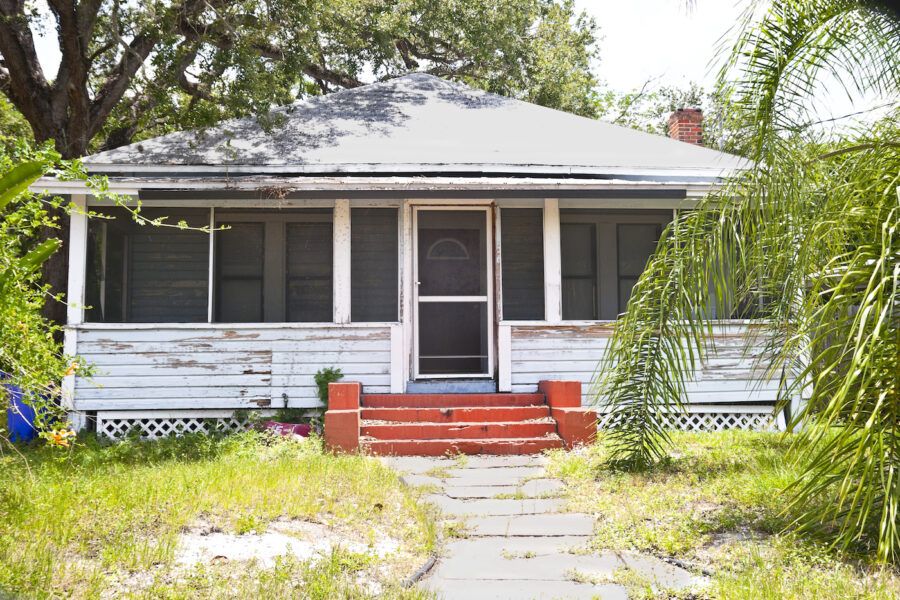In this article:
While you may think of a home warranty as something you buy with a brand-new home, older homes may be good candidates for home warranties due to a higher chance of needing big repairs. Shopping for a home warranty on an older home may come with some hurdles, however, so you'll want to make sure you understand the timing and the stipulations of any warranties before signing.
How to Buy a Home Warranty for an Older Home
You can purchase a home warranty at any time, so even if your home is older or you've lived there for a long time, you can buy one to prepare for possible repairs in the future. To buy a home warranty, you contact the company and request a quote, like you would when purchasing home insurance.
Some companies may require an inspection before they finalize your warranty. If you have any clearly apparent issues or "preexisting conditions," the company may not agree to cover that system or request repairs first. This may be a challenge with older homes, especially if they aren't in the greatest condition.
No matter the age of your home, you'll pay a similar amount for your warranty. Each year, the average home warranty fees amount to $300 to $600. Service fees when a repair is needed range from $75 to $125. Considering that the cost of a new appliance can easily top $1,000 and labor rates for repairs can go over $100 per hour, the cost of a home warranty can be worth it in certain situations.
Some warranties may include limits on specific coverage areas. For example, your insurer may limit how much it will pay out for a new HVAC system. If a policy has a cap and your repairs exceed it, be prepared to cover the rest of the costs out of pocket.
What Does a Home Warranty Cover?
Home warranties cover repairs and replacement parts. Whereas home insurance pays to replace damage you couldn't see coming, home warranties pay for damage you can expect. These repairs and replacements are typically due to wear and tear.
A home warranty covers systems and parts in your home like:
- HVAC
- Plumbing
- Electrical
- Water heaters
- Ductwork
- Some appliances
- Garbage disposal
- Garage door opener
Some components in the home may require an extra fee. These include:
- Pools
- Refrigerators
Older homes may have several big systems in need of upgrades or updates. If you suspect your older home will soon need a new heating system or a plumbing upgrade, it may be a good idea to purchase a home warranty.
Pros and Cons of a Home Warranty
| Pros | Cons |
|---|---|
| You can purchase a home warranty at any time on a home of any age | You may go many years paying for coverage without using the warranty |
| Warranties cover the replacement of systems and appliances, typically with a small service fee at the time of repairs | Your repairs may exceed the limit caps of your warranty, leaving you to foot the bill |
| Warranty companies coordinate repairs so you don't have to | Warranty companies choose your service providers, which may also influence the speed of repairs |
Other Ways to Protect Your Older Home Financially
Getting a home warranty is not the only way to protect your older home financially. If you're looking to make sure the high-cost needs of your older or historic home are properly covered, consider purchasing a:
- Historic home insurance policy: If your older home is especially older—think a classic Victorian Queen Anne—you may need to get a specific type of insurance meant for older homes. Older homes may cost more to rebuild than they are worth, which necessitates a special policy.
- High-value homeowners insurance: If your older home also falls into the "high-value" territory, as many historic homes may, you might want to consider high-value homeowners insurance. This applies to homes that would cost $750,000 or more to rebuild. These policies help ensure there is enough coverage to rebuild.
- Supplemental disaster policies: You may also want to explore supplemental insurance policies to cover your home in the event of specific disasters. Your typical homeowners insurance likely does not cover events like floods and earthquakes. If you live somewhere prone to these events, consider adding a supplement policy to protect your home.
Of course, it's always a good idea to prepare an emergency fund for home costs. Putting money in a savings account that you would otherwise spend on warranty fees could help you build up a healthy fund. When needed, use this fund for sudden repairs, improvements and maintenance.
The Bottom Line
Shopping for the right coverage for your home, whether that is a homeowners policy, a home warranty or a supplemental policy is essential. But reaching out to providers, requesting quotes and comparing coverage details can all be time-consuming, especially if you want multiple quotes.
Using a resource like Gabi®—a part of Experian—to shop for homeowners insurance quotes can take at least one chore off your plate and help you get quick results. You'll feel confident you've found the best policy for the most available savings and can spend more time on other options to protect your home.

